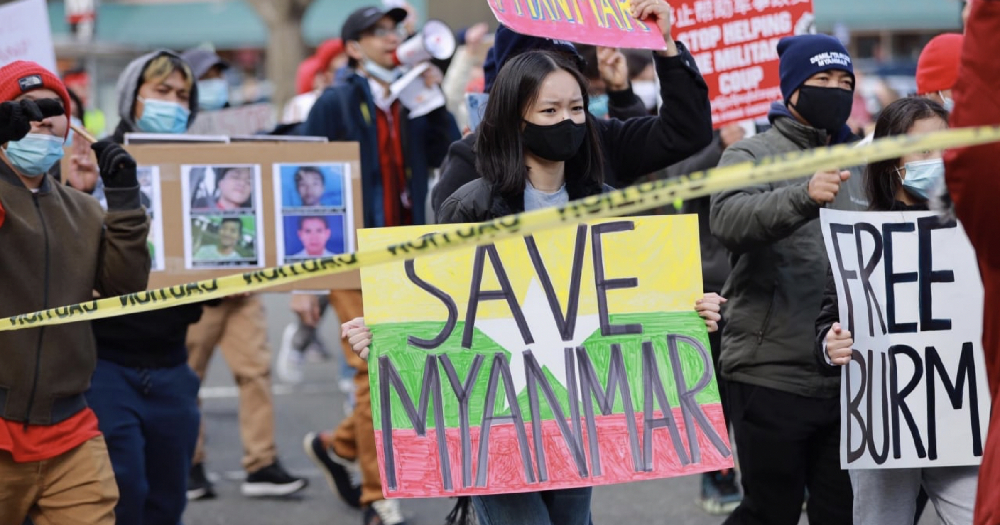Follow us on Telegram for the latest updates: https://t.me/mothershipsg
PERSPECTIVE: "Some days, I see my friends go out to protest and I worry about them even as I wish I could join them on the streets. Yes. Even if I could die by gunshot."
A Myanmar national who has been living in Japan for the past eight years shares her thoughts on the protests back home. Despite being away from her homeland, she says her heart is very much with her people who are fighting against military dictatorship.
By Kyay Mon, 28
On the morning of Feb. 1, I woke up to a message notification from my mother back home in Myanmar.
It was the first sign that told me something was wrong. My mother never messaged me this early in the morning because of the time difference. Besides, we just had a video call the previous night. Unless it’s an emergency, there was no reason for her to be texting me at this hour.
I was filled with a sense of dread as I opened the message.
“The military had staged a coup.”
I stared in disbelief at my phone screen for several seconds, stunned. This must be a dream, I thought.
Then, I scrambled to see what’s happening on Facebook. My timeline was filled with posts from friends and family in Myanmar who were shocked and confused. As I scrolled through the news, it slowly started to sink in that this was not a dream. This was happening in real life.
It has been more than a month since that morning when Myanmar’s military seized power to overthrow the democratically elected government. People’s initial shock and confusion had been replaced by anger and passion for justice, leading to mass protests across the country and a civil disobedience movement that is slowly gaining momentum.
This resistance has been met with violent and brutal crackdowns by the military.
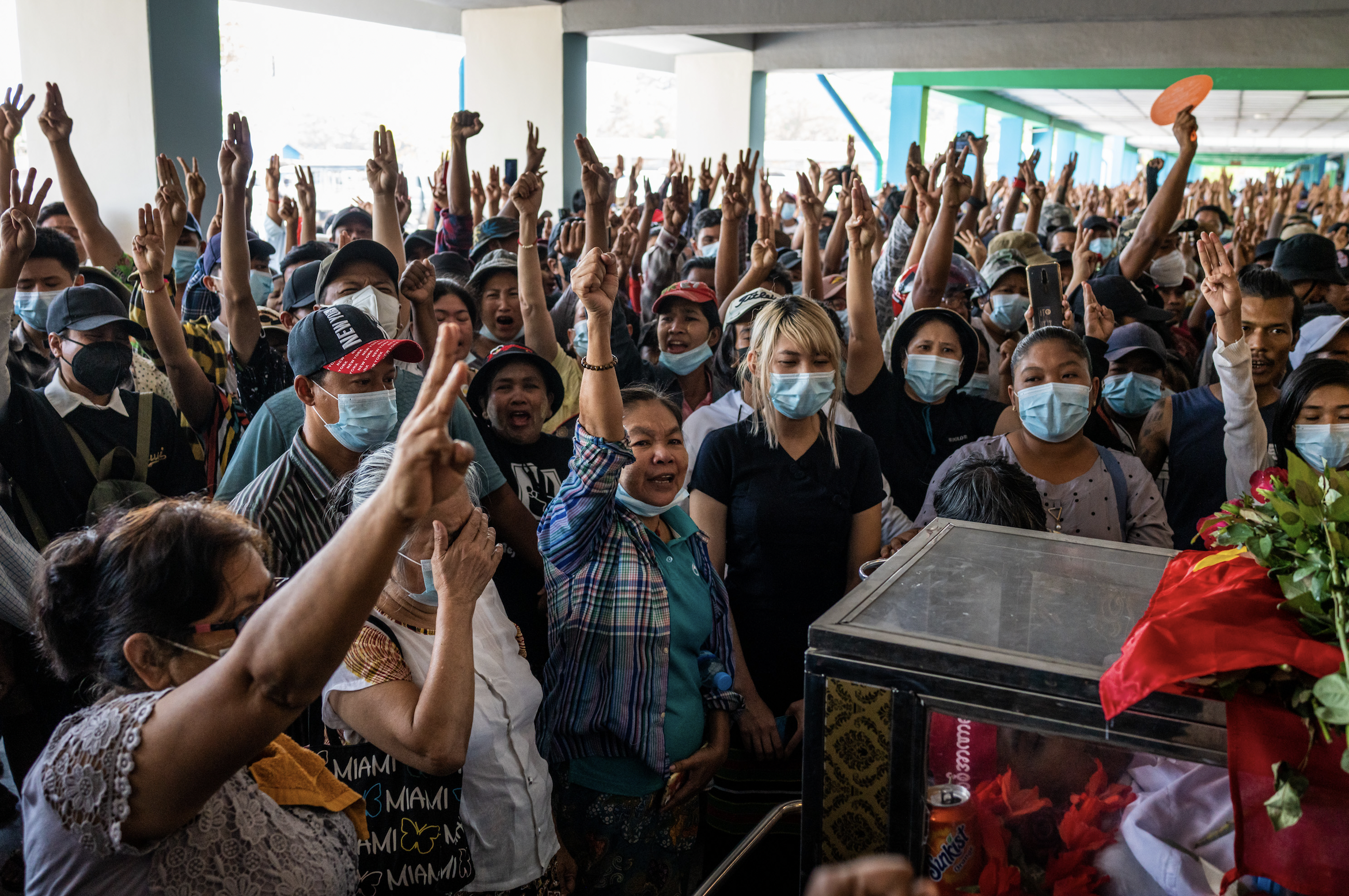 Image via Stringer/Getty Images
Image via Stringer/Getty Images
More than 50 people have lost their lives, and more than 1,000 people have been arrested, charged or sentenced due to the coup.
I feel powerless and helpless
Nowadays, the first step in my morning routine is to reach for the phone nervously as soon as I wake up.
Have I missed any important news while I was asleep? Are my family and friends okay? (Midnight raids, arbitrary arrests and internet blackouts have become common occurrences since the coup.)
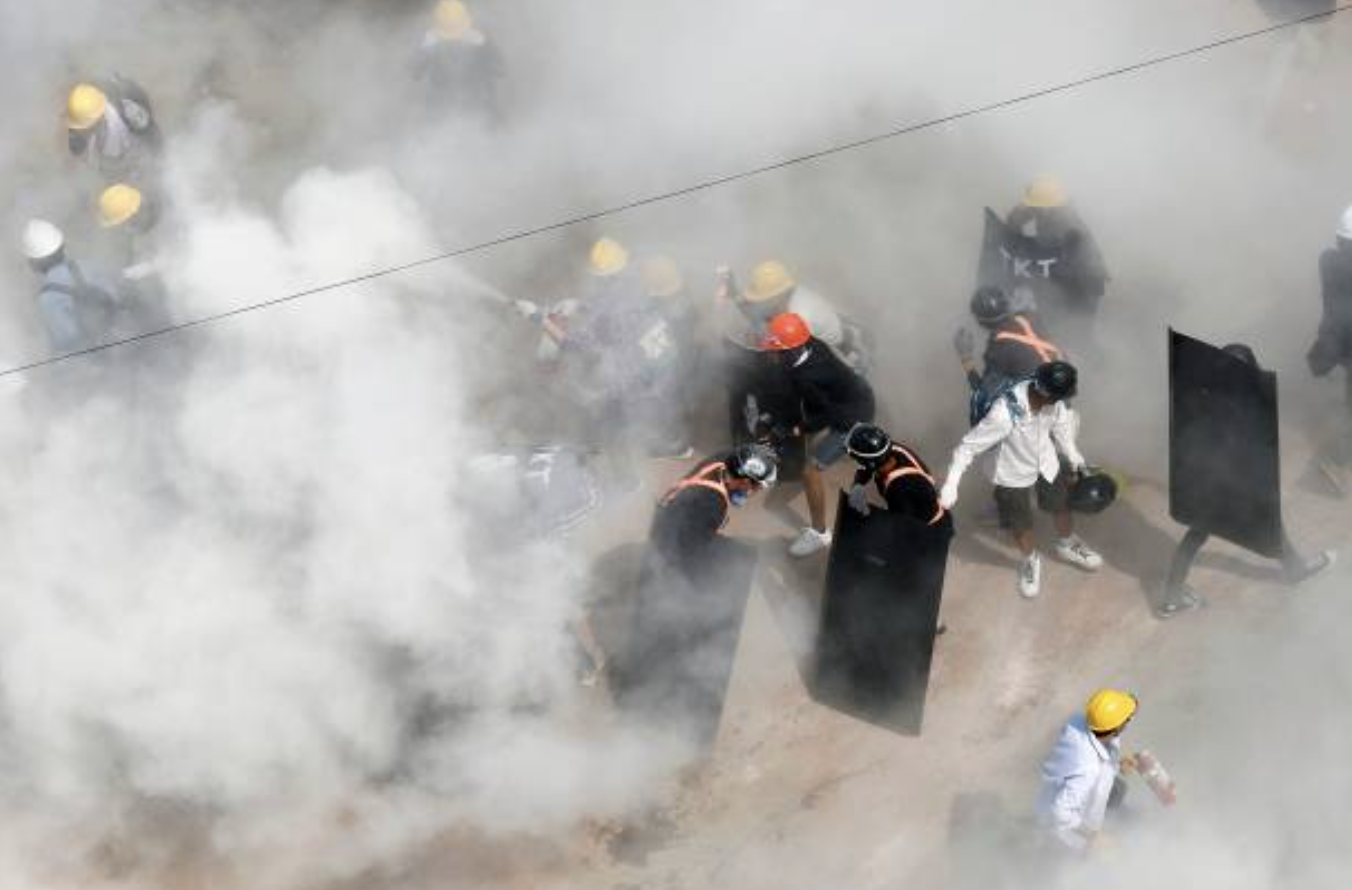 Image by STR/AFP via Getty Images
Image by STR/AFP via Getty Images
As someone who is working abroad when their home country is in turmoil, I feel like my body and mind are existing in two different realities. Many times, I am gripped with guilt, feeling that I am not doing enough for my country in its time of need.
Of course, there are still many actions I can take to support my people’s fight for democracy from afar.
I believe that every citizen of Myanmar who wants to stand up for justice and freedom has a role to play, no matter how small or large that action may be and no matter where they may be in the world.
The streets I once walked are now unrecognisable
But some days are hard.
Some days, I watch videos of the protests and I cannot recognise the familiar streets of my city, filled with tear gas smoke, sounds of shooting and people running for their lives.
Some days, I see my friends go out to protest and I worry about them even as I wish I could join them on the streets. Yes. Even if I could die by gunshot.
Some days, I read the news about protestors who lost their lives, many of them in their teens and twenties, and mourn for precious lives robbed in broad daylight.
Who do you turn to for help when your own country’s army have turned their guns upon you?
Some days, it’s hard to stay hopeful and feel empowered.
It is the responsibility of a country’s army and police force to protect its people. But when the same institutions are responsible for violating your basic human rights, who can you turn to for help?
It is no wonder that people have taken to social media to call for help from the international community -- these desperate cries can be seen via the hashtag #whatsHappeningInMyanmar.
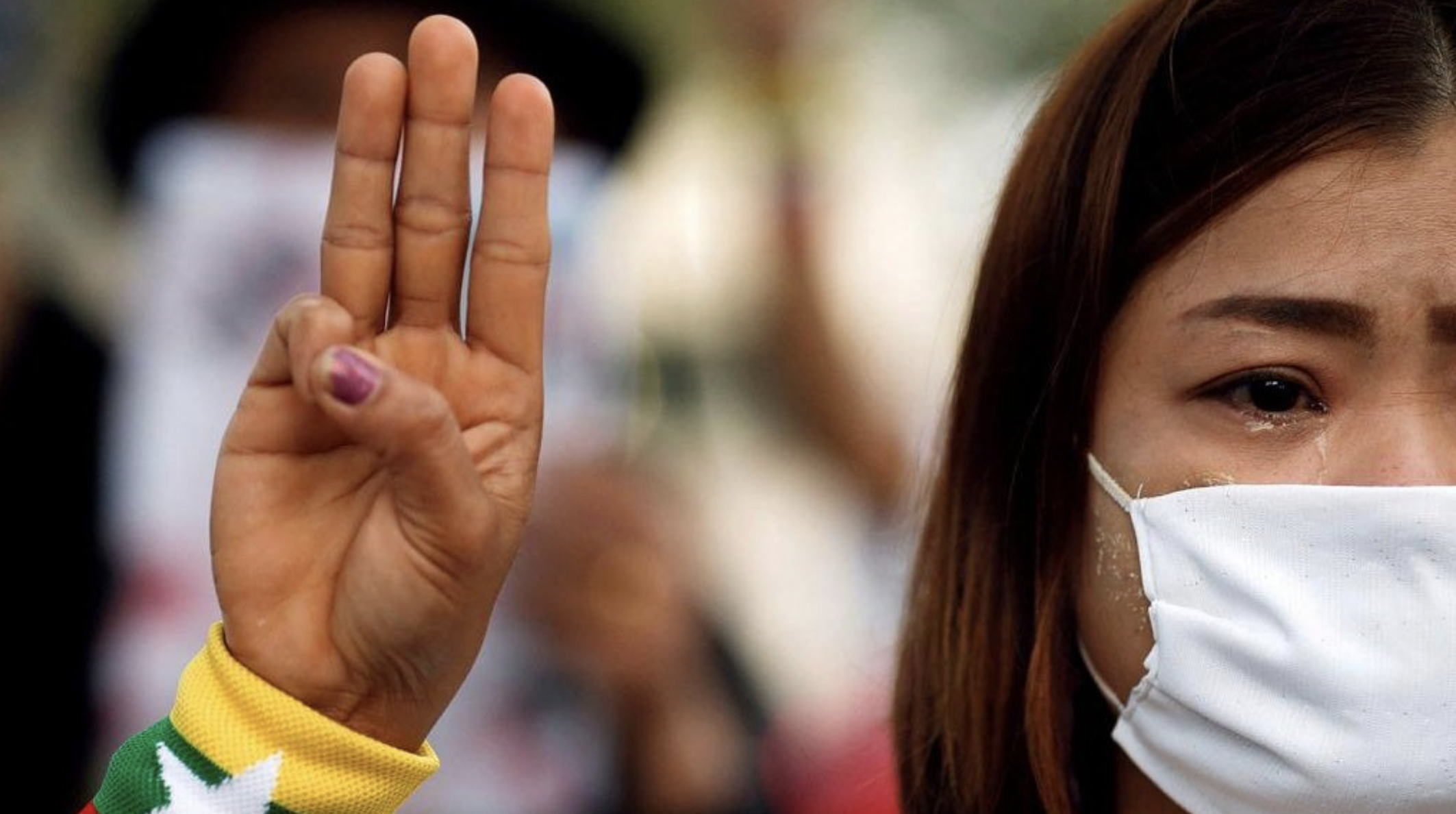 Image via @Soe Zeya Tun/Twitter
Image via @Soe Zeya Tun/Twitter
This is an unfair fight as one side is unarmed and the other side has weapons at their disposal.
But even with their lives (and the safety of their loved ones) on the line, people continue to show up in the streets and speak out against military dictatorship every day.
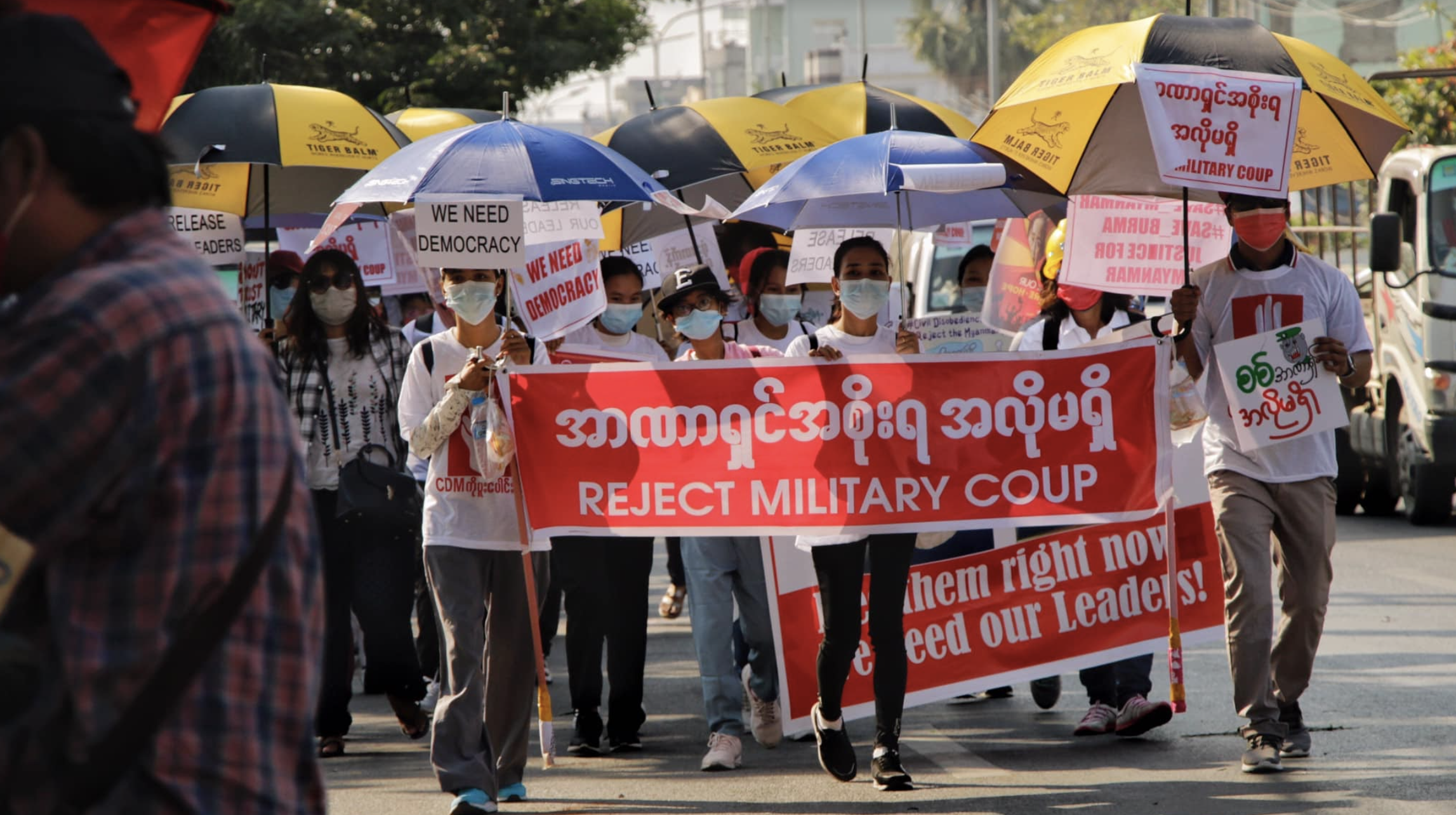 Image by Kyaw Phyo Thar
Image by Kyaw Phyo Thar
Fear from military rule deeply ingrained in Myanmar society
Myanmar is no stranger to a military coup.
The first one took place in 1962 and the second in 1988. Our grandparents and parents have experienced coups and lived through decades of military dictatorship. They know what can happen to people who dare to resist. They watched their families and friends get killed, arrested and blacklisted.
In my country, fear and trauma from military rule are deeply ingrained and get passed down from generation to generation.
My parents back home are now experiencing a third coup in their lifetime.
In our conversations, they shared their personal experiences of the 1988 coup, when they were young adults in their late 20s just like me now.
They told me how they took part in the protests with other youths, and how they were so angry and passionate to fight for their rights. They also talked about the chaos they witnessed, about how in the end, the military simply crushed the protests with brute force, resulting in a bloodbath.
They worry about history repeating itself.
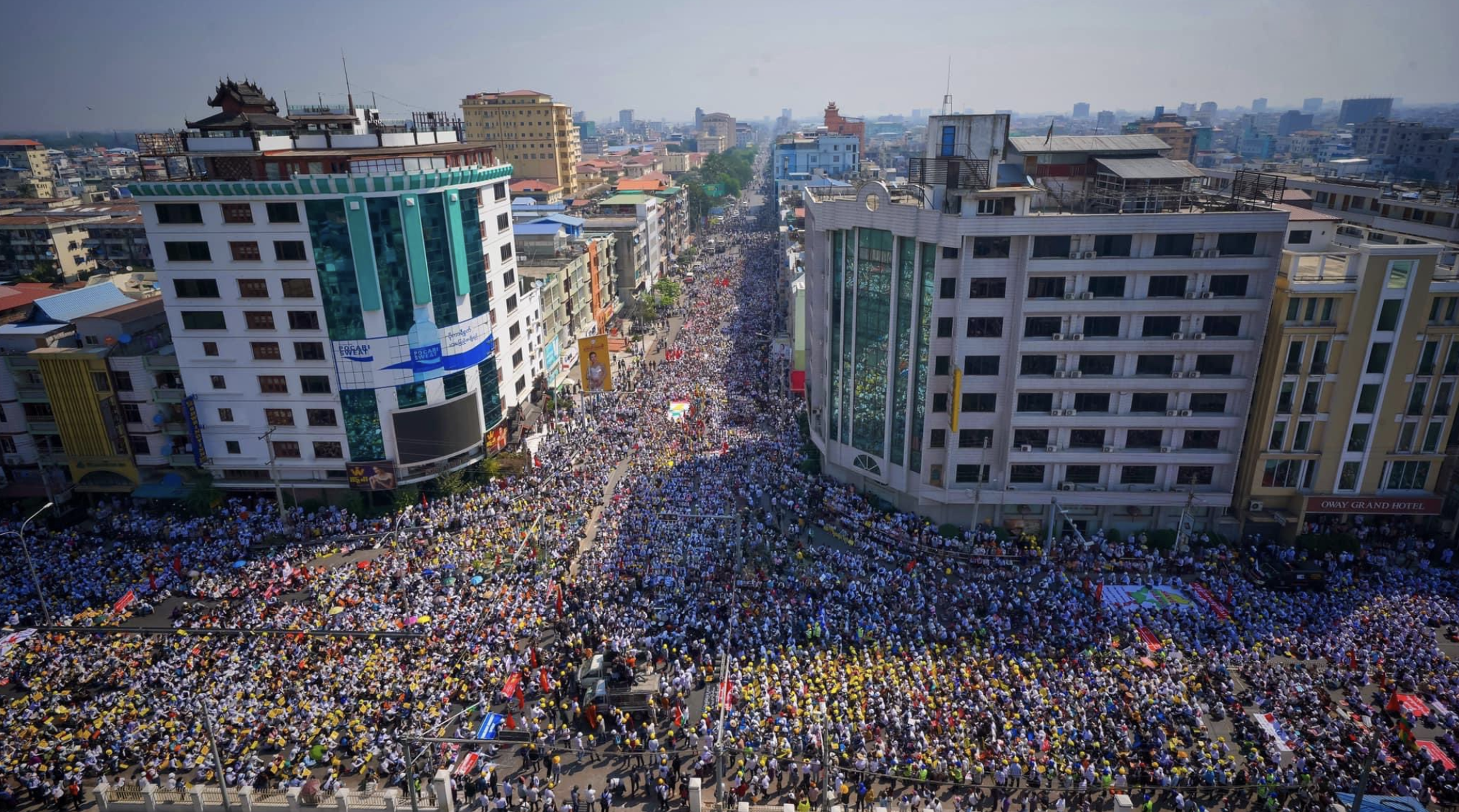 Image via @Soe Zeya Tun/Twitter
Image via @Soe Zeya Tun/Twitter
Many who lived through the previous coups are resigned to their fates
Many in the older generation are cautious and resigned when it comes to resisting the military coup. This has caused tensions between them and the younger generation, who are outspoken and passionate to take action.
I know friends who have gotten into arguments with their parents over going out to protest or expressing their disapproval against military dictatorship on their social media.
It makes me wonder whether I would be having similar arguments with my parents if I were in the country.
Observing from the outside, I can see where both sides are coming from. But I also understand that it is explicably difficult when you are the one personally going through an experience where the stakes are high, and where emotions are felt on a more intense level.
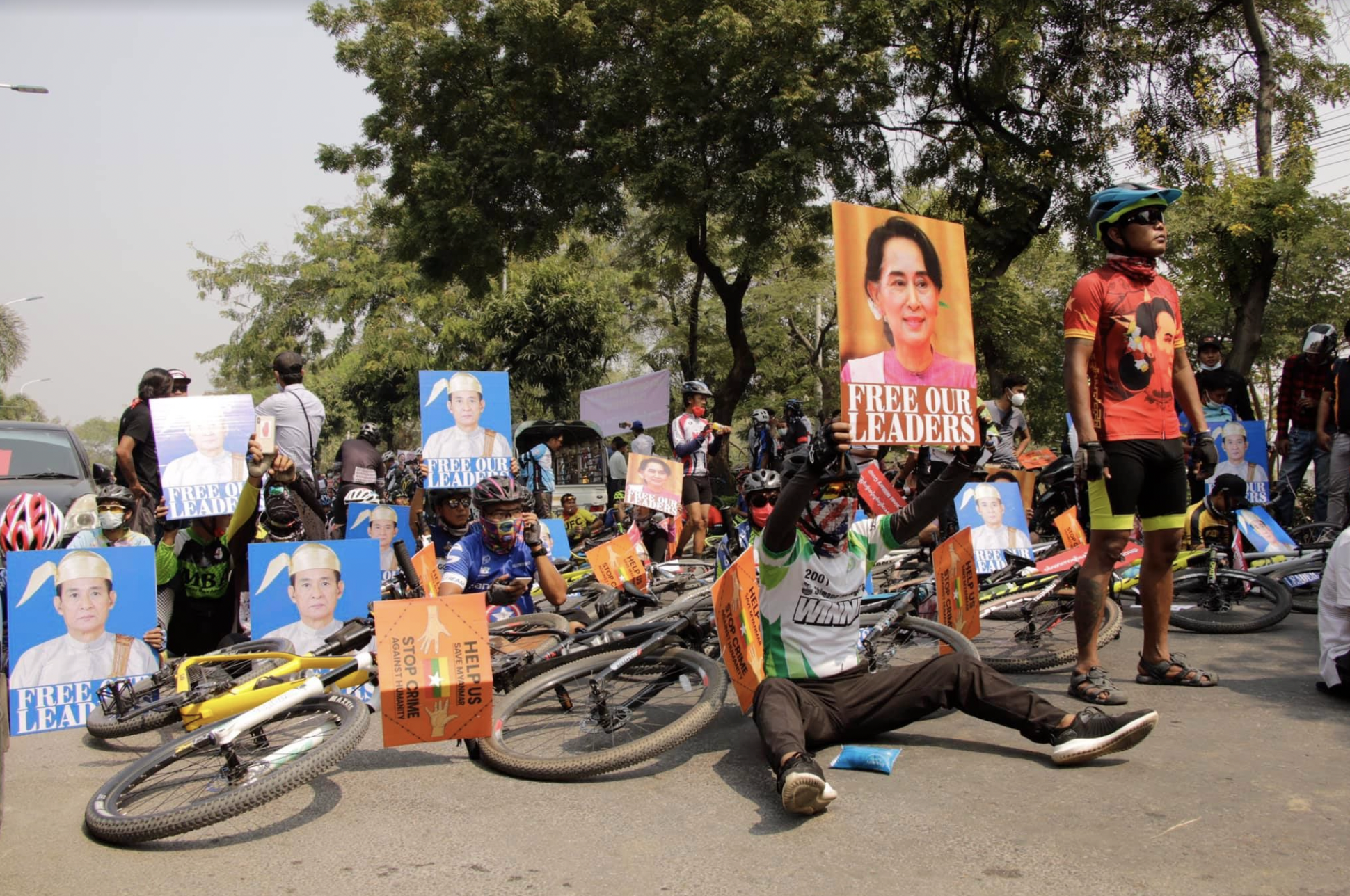 Image by Kyaw Phyo Thar
Image by Kyaw Phyo Thar
We cannot imagine going back to a life seized by fear
Personally, I feel that there is a unique strength in the current resistance.
It is informed by the lessons and insights gained from history, and led by the energy, passion and creativity of youths. Both the old and young generations can support one another for the common goal of creating a better future for the country.
Unlike previous times, many people in Myanmar have also gotten a taste of democracy (no matter how flawed or incomplete it was) in the past few years.
The democratic government led by the National League for Democracy (NLD) party was not perfect but people were hopeful that things could get better slowly.
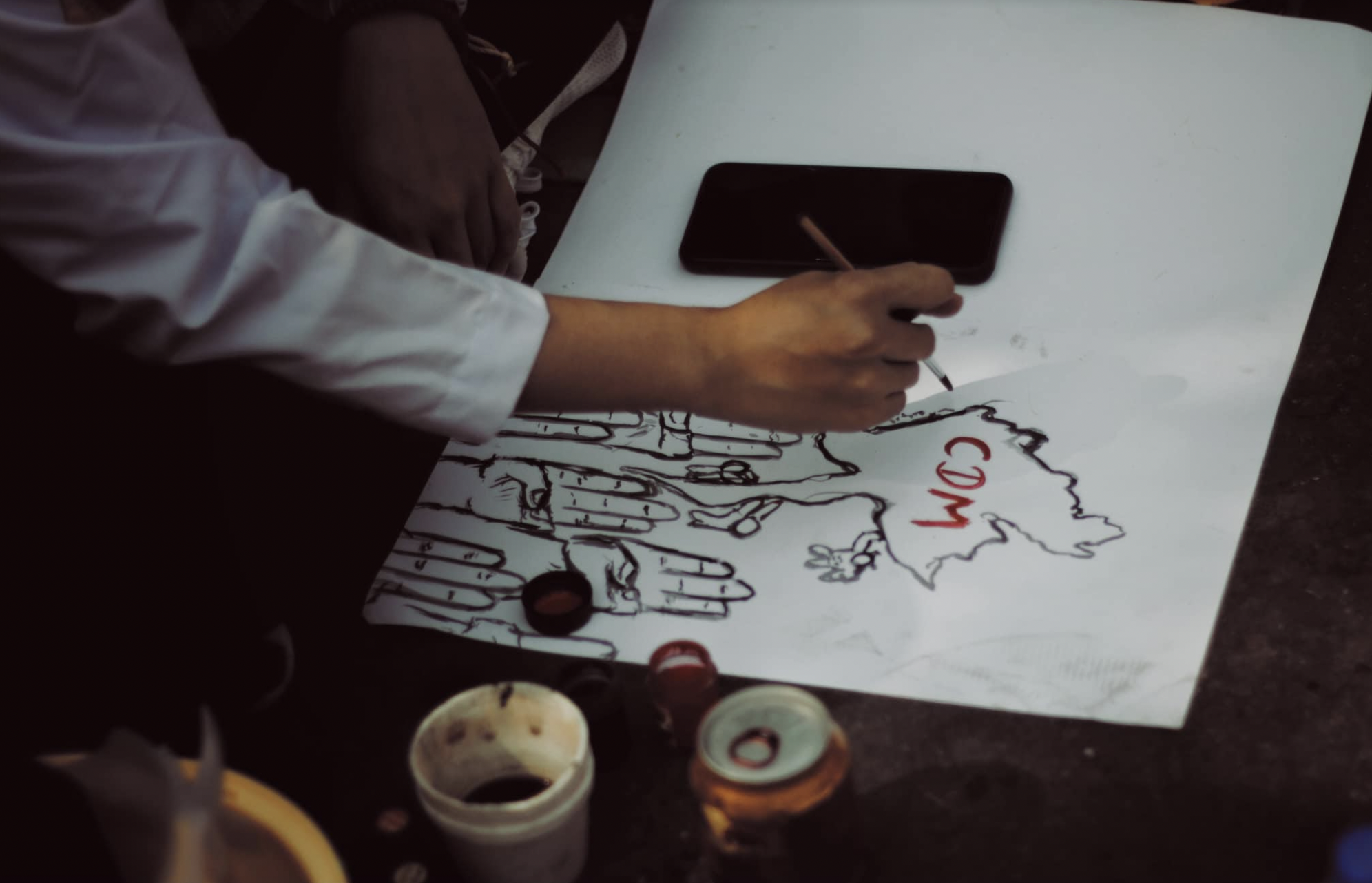 Image by Kyaw Phyo Thar
Image by Kyaw Phyo Thar
If the country fell back under military regime, all of that hope and the progress made so far would be lost.
We simply cannot imagine going back to a life governed by fear. This is one of the reasons why there has been an outpour of protests from all walks of life across the country.
Maybe this time, we can win
In my lifetime, I have not witnessed people in my country uniting for a cause on this scale before.
Decades of marginalization and exclusion have created divisions along ethnic lines. For many years, ethnic minorities have suffered injustices at the hands of the military and things have not improved much for them under the NLD government.
Nonetheless, different ethnicities have come together to fight against the common enemy of military dictatorship.
A silver lining of hope during these dark times is that it has brought about increased awareness and understanding about the grievances of ethnic minority groups. I hope this shift can unite us and guide us towards achieving equal and inclusive federal democracy in the future.
I also believe in the potential of youths to bring about a different outcome this time around.
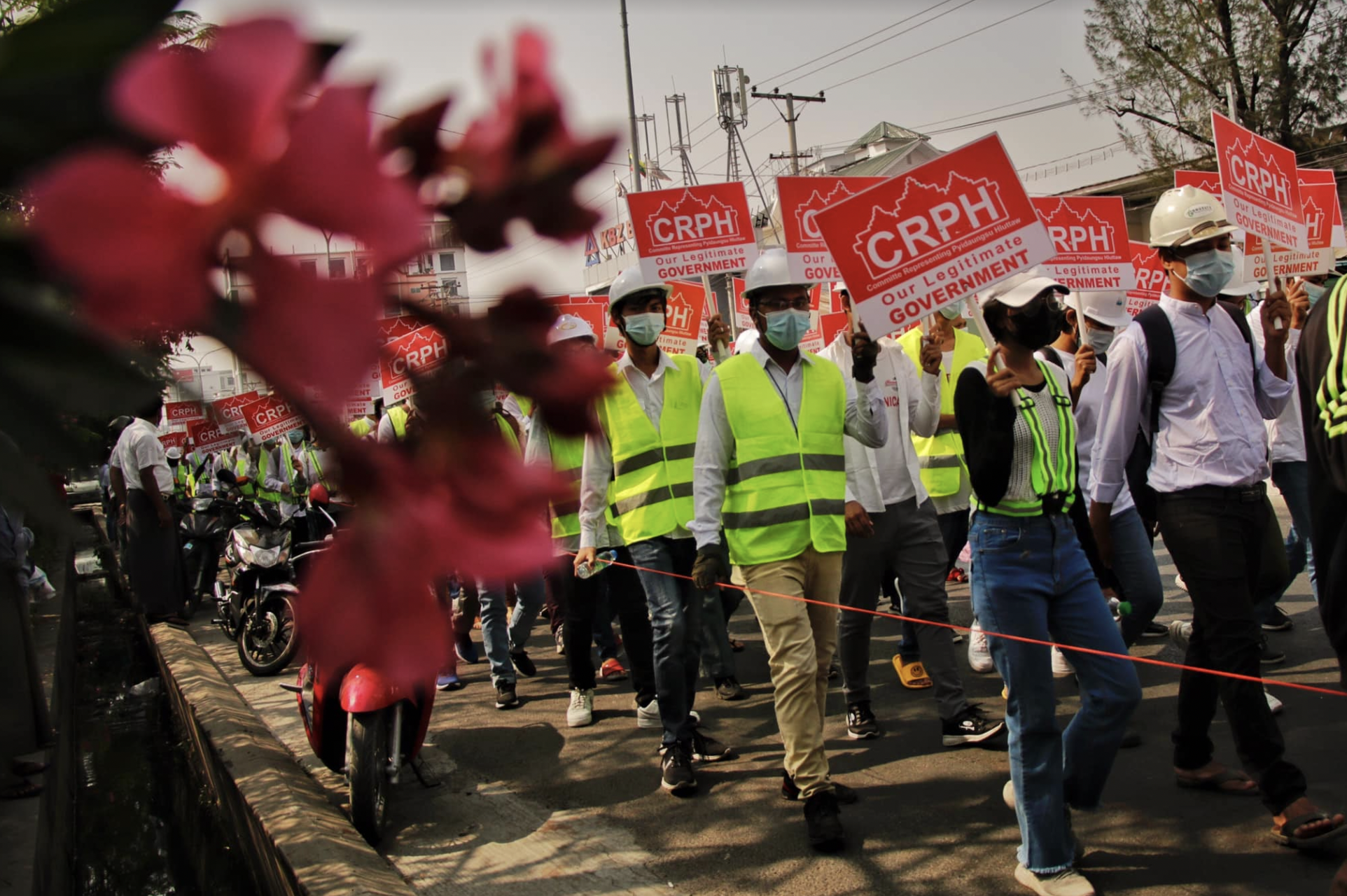 Image by Kyaw Phyo Thar
Image by Kyaw Phyo Thar
Many Gen Y and Gen Z youths in Myanmar have experienced more freedoms and better educational opportunities since they grew up at a time when the country went through a democratic transition and opened up internationally.
They have increased awareness and connections to global society. They are also savvy with technology and social media.
Since the coup began, young democratic protesters in Myanmar have rallied international support.
They have come up with their own ways to protest creatively, adapted what they have learned from their fellow counterparts in Hong Kong and Thailand, and to prove that they will not be silenced by brutal tactics employed by the military, even at the cost of death.
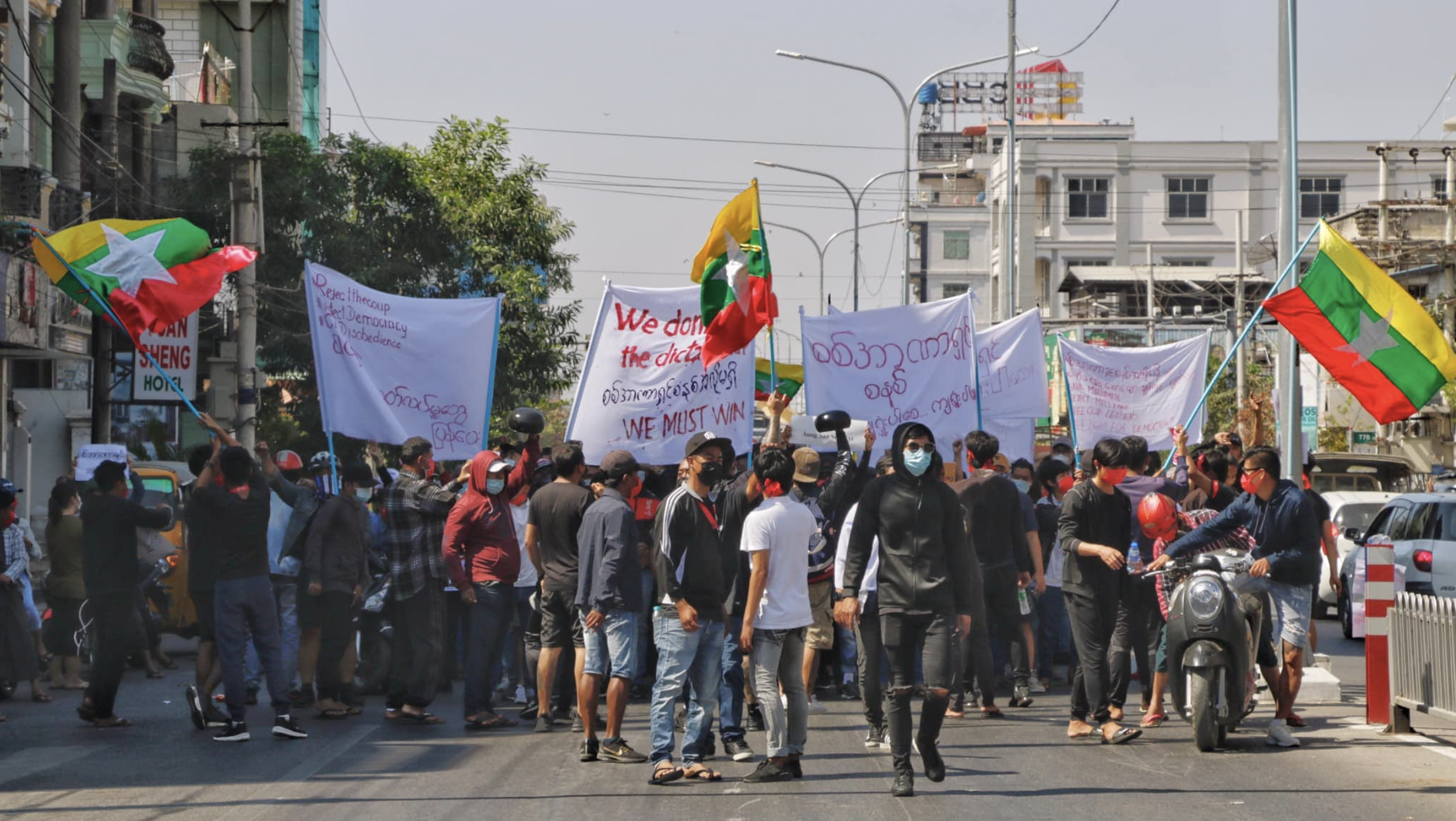 Image by Kyaw Phyo Thar
Image by Kyaw Phyo Thar
Keeping hope alive
As someone who grew up under military dictatorship, I do not want the future generation to live in a society dominated by a culture of fear.
If we lose this fight, who knows how many more decades we will have to spend under military rule? How many more lives have to be sacrificed in the future to get back our freedoms and rights?
I don’t know how long this fight will take or how many more sacrifices we will have to make. But one thing I know for sure is that we are going to fight with everything we have to get back our democracy.
May justice prevail in Myanmar.
Read more:
Top image via @phoo2626/Twitter
If you like what you read, follow us on Facebook, Instagram, Twitter and Telegram to get the latest updates.
